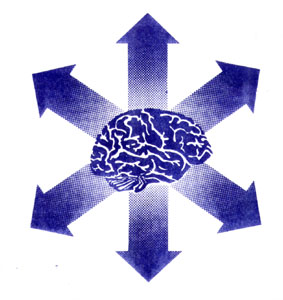This post is about suicide, a subject that has not been studied very extensively since Emile Durkheim published his seminal book SUICIDE in 1897. It’s also about morality and community or the density of connections we have or feel with other people.
For Durkheim, sociology is the science of morality. Morality, for him, is not just an abstract set of ideas disembodied from our lives as we live them. Morality, for Durkheim, is all about how closely we are integrated into our ‘societies’. Societies can be anything from a family to a nation, but are not equivalent to nations or nation-states. Societies organize rules for themselves around who belongs and who doesn’t. These rules may be firm enough in theory, but in practice not so much. And they are based on those things in our lives that matter the most, things that shift constantly over time and space.
Durkheim uses his study of suicide as a way of measuring the density of our connections with others and the ideas/values that dominate our lives whether we agree with them or not. The reason poor people are shunned in our society and considered moral degenerates is because their lives are a testament to their failure to live up to one of our most cherished values: wealth. Our talk of equality is just that, talk. We judge people by their lives and how closely they are connected to social and moral values. Nobody has any value outside of our moral and existential categories. Of course, moral values involve many aspects of our lives like who is allowed to have sex and when, who has a job and who doesn’t, who has an education, takes vacations, has children, votes, etc..
A graphic showing Durkheim’s typology is organized around Durkheim’s concerns with the glue that holds us together in society. He refers to regulation and integration as two key notions or ‘agglutinating’ factors in our lives. He identified (see the graphic) two major types of suicide: anomic and egoistic. These types of suicide do not refer to individual characteristics, but to the quality of social organization. For example, egoism, for Durkheim, refers to a social condition where individuals are not integrated into the social fabric. I would characterize suicide in many Canadian aboriginal communities as egoistic suicides because the individuals concerned are not connected to the broader moral community, not because of any fault of their own, but because they have been systematically and legally excluded by colonialism and marginalization. Anomie, for Durkheim, is a social condition whereby the moral rules people have come to rely upon to conduct their lives are weakened or disappear. Moral confusion leads to anomic suicide.
Durkheim’s research revolved around studies of religion, family, sex, time of year, education, wealth and poverty, etc. Durkheim had a friend who took a job teaching in a provincial school in the south of France leaving Paris and all his family and friends. He eventually committed suicide. Although Durkheim doesn’t mention this case in his book, he was definitely absorbed by it and determined to explain why his friend would do such a thing.
We often think of suicides as people who are mentally ill. Durkheim resisted this theory, pointing out that in many cases, there is no indication at all that a person who commits suicide is mentally ill. Suicide, for Durkheim, is all about the weaknesses of our social and moral rules. Individuals who commit suicide are responding to a lack of their integration into society. People who are ‘schizophrenic’ (a highly contested diagnosis, by the way) may be exhibiting the symptoms of disengagement from a society that doesn’t have a clue about how to communicate with them and often presents them with completely contradictory messages about their importance to others and to society as a whole.
People with the best of intentions, parents, educators, medical personnel and others, may believe they are doing the best for the schizophrenic ‘patient’, but are instead pushing him or her away by their inability to communicate with them on their terms.
This is a touchy subject in our world. Most people can’t understand why a person would take their own life, distancing themselves permanently from the society most people value so highly. We say of suicides that ‘they passed away at home suddenly.’ When have you seen in an obituary that the deceased has committed suicide? Over 3000 people commit suicide in Canada every year. You wouldn’t know that from reading obituaries. We are ashamed of even discussing suicide. It’s such a taboo subject.
For me, schizophrenia and suicide are both rational responses to impossible social situations. I’m sure that’s not a popular view, but after 35 years of study of the topic, it’s a view that I find I cannot dispute. I probably should put together a list of publications that back up my views. I will do that if I get enough interest. I’m open to discussing this at any time with anybody. Just ask.
